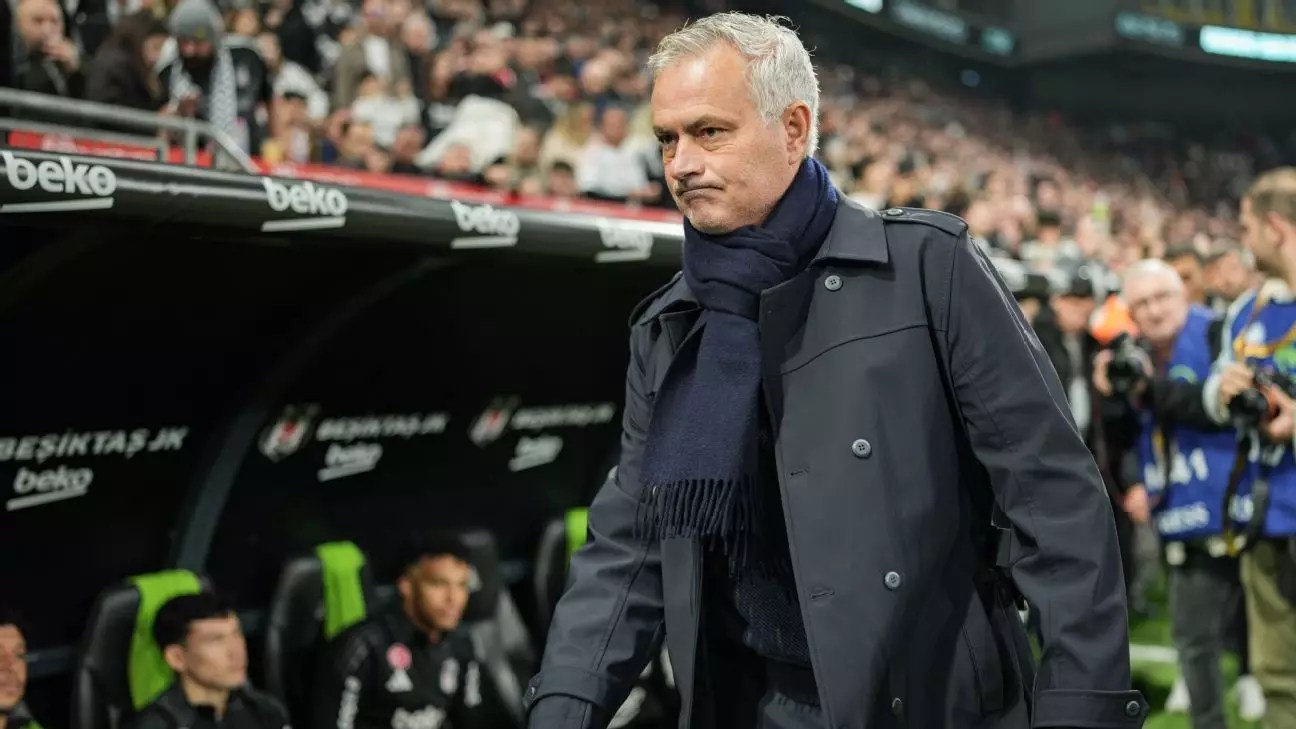Jose Mourinho’s tenure at Real Madrid from 2010 to 2013 is remembered fondly by many fans. During his three seasons, he not only secured a La Liga title but also the Copa del Rey and the Spanish Supercup. This period marked a significant chapter in his career, one that he seemingly cherishes. Recently, while managing Fenerbahce, the 61-year-old hinted that he may be open to a future role at Madrid, igniting speculation about a possible reunion. Mourinho’s admiration for the club and its culture is evident; he emphasized that he remains a passionate supporter of Madrid, which serves as a testament to his historical ties to the team’s legacy.
In the realm of elite football, managerial changes are a constant. Mourinho’s remarks reflect an understanding of the complex decision-making process at football clubs, particularly at Madrid, which is known for its high ambitions and stellar roster. He acknowledged that the future of the managerial position is contingent on the preferences of Florentino Perez, the club’s president. The upcoming decisions could favor a youthful and progressive approach, as seen in the potential candidacies of Xabi Alonso or other former players steeped in Madrid’s philosophy, such as Raul or Alvaro Arbeloa. Such dynamics underscore the strategic shifts within top clubs, balancing experience with emerging talent.
Carlo Ancelotti is currently at the helm, enjoying a mixed bag of results that place Madrid in a competitive position within La Liga and Europe. However, with his contract extending until June 2026, questions about his long-term future remain. Mourinho expressed confidence in Ancelotti’s abilities, suggesting that any transition would hinge on the comprehensive assessment of current performances and strategic alignment with future goals. The assessment of Ancelotti’s tenure will function as a critical pivot for Perez’s decisions, as managers at elite clubs often receive little room for error in high-stakes environments.
Real Madrid presently sits second in La Liga, trailing Barcelona by a narrow margin yet holding a valuable game in hand. Their latest performance in the Champions League against Atalanta showcased their competitive edge, despite their precarious position on the leaderboards. As of now, they sit outside of direct qualification for the knockout stages. This raises questions about squad depth and tactical adaptability, challenging Ancelotti to navigate through these critical phases effectively. The decisions made in the coming months regarding managerial direction could greatly influence not only the players’ morale but also the club’s trajectory in major competitions.
Though currently engaged with Fenerbahce, Mourinho’s insights reflect a broader understanding of football’s intricate management tapestry. His comments speak to the ongoing evolution of coaching talent within football, where experiences converge to shape a club’s identity. Should Mourinho return to Real Madrid, it would not merely be a reunion but a significant chapter in both his career and the club’s history, intertwining nostalgia with ambition for success in the years to come. As the football landscape continues to shift, the paths of legends like Mourinho and clubs with rich histories like Madrid will remain a focal point of discussion for fans and analysts alike.


Leave a Reply